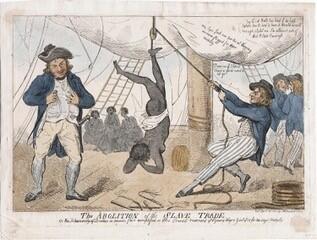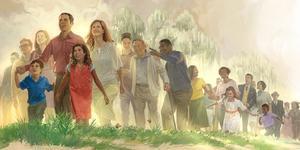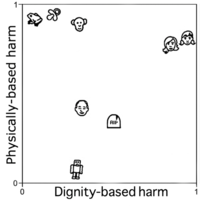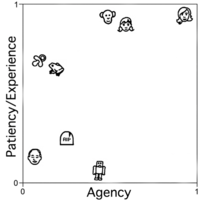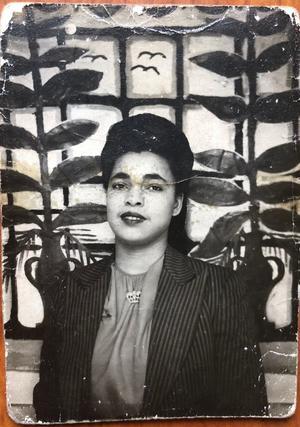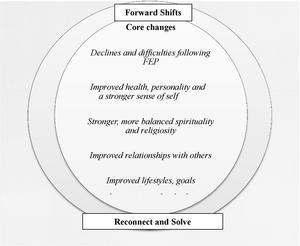2019-2020 Franke Fellows
Franke Undergraduate Fellows
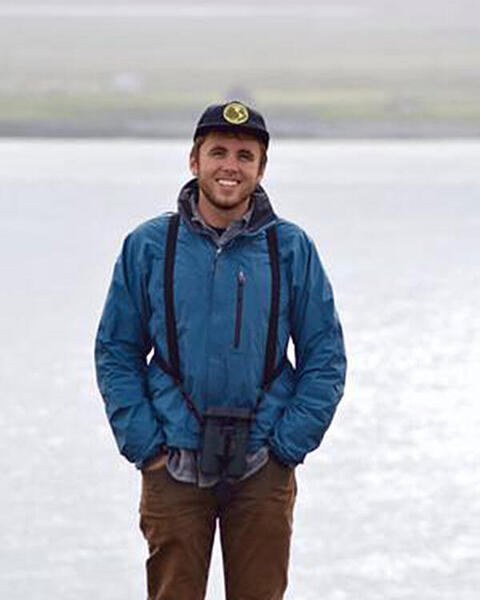
Hunter Craft
Hunter Craft is a senior at Yale graduating in May 2020 with a degree in anthropology. Hunter’s interests at the intersection of language, culture, and the material world have taken him most recently to Finnish and Norwegian Lapland, where he conducted nearly three months of ethnographic fieldwork. His project sought to understand how Finnish people navigate maintaining traditional forms of subsistence (hunting, berry picking, and fishing) while participating in the global economy as citizens of a modern Nordic democracy. His research addressed questions regarding identification of non-human organisms, the interplay between utilitarian and symbolic explanations for cultural practices, and the recent economic and environmental history of Finland. Hunter is a native of Southern California, but has lived in Connecticut since 2014, with a two year break from 2015-2017 when he lived in Finland for the first time.
https://macmillan.yale.edu/news/student-spotlight-exploring-rights-nature-ecuador
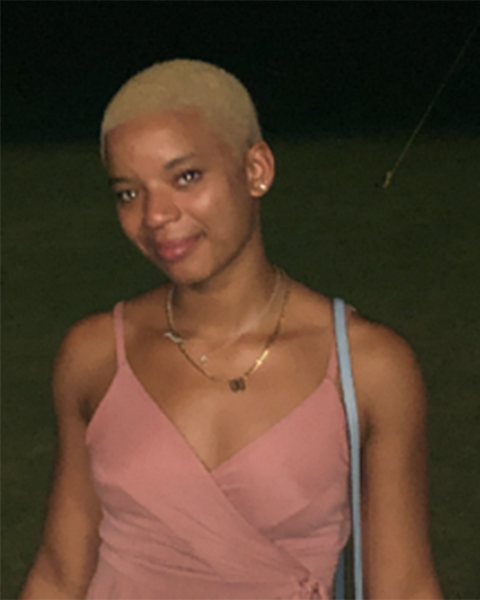
Alexis Hopkins
Lexi is a senior in Jonathan Edwards College, studying History of Science, Medicine, and Public Health. My Franke Project analyzes mental illness within slaves. Particularly looking at the Caribbean, this project began as an analysis of mental illness—in particular suicide—and has evolved to track the politicization of slave’s mental illness throughout time.
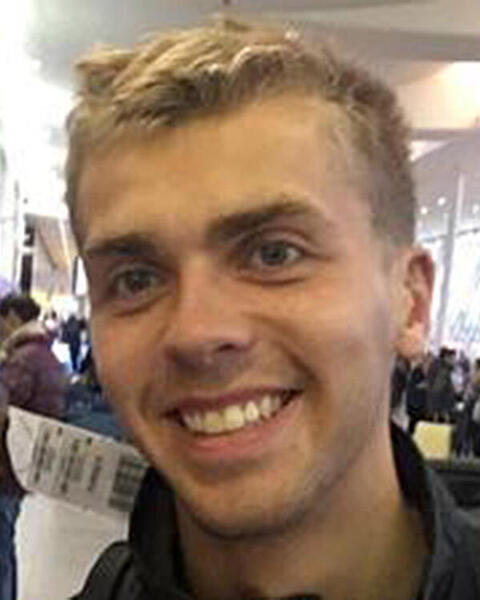
Addison Luck
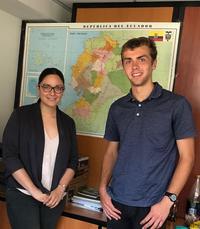 Addison with Stephanie Avalos, Ecuador’s Undersecretary of Climate Change
Addison with Stephanie Avalos, Ecuador’s Undersecretary of Climate Change
Addison is a senior Environmental Studies (B.A.) and History (B.A.) major in Yale College. He is passionate to continue his education and work post-Yale in the field of environmental law and advocacy. This summer, Addison used the Franke Fellowship (and a few other Yale Fellowships) to travel to Ecuador to research the Rights of Nature for his senior thesis for the Environmental Studies major. The Rights of Nature is a new legal strategy where Nature and certain environmental features are given legal standing (or “personhood”) in the eyes of the law, meaning Nature can represent itself in court (through some sort of human guardian). In 2008, Ecuador became the first country in the world to recognize the Rights of Nature in their Constitution, and there has been around 25 court cases where some aspect of Nature (sharks, a forest, a river, etc.) has been listed as the plaintiff. Using the research and data he collected over the summer, Addison will be writing his Environmental Studies thesis on this topic, exploring how Ecuador might be able to better enforce the Rights of Nature.
Links:
https://macmillan.yale.edu/news/student-spotlight-exploring-rights-nature-ecuador
https://www.dailycamera.com/2019/05/21/addison-luck-nature-legal-rights-boulder-creek/
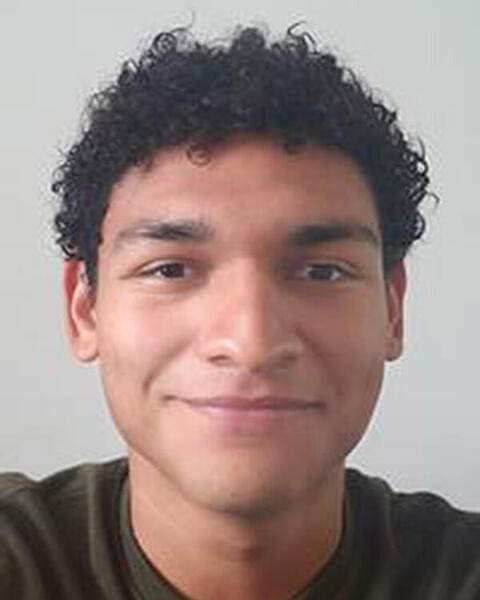
Angel Osorio Pizarro
Angel Osorio Pizarro is a fourth year Cognitive Science major from Fajardo, Puerto Rico. He works with Yale’s Automacity in Cognition, Motivation, and Evaluation (ACME) lab, and is interested in how cognitive mechanisms and socio-cultural framing work together to affect the way we formulate concepts and think about the world. The findings presented will be part of his 2019 thesis for the B.S. in Cognitive Science.
Angel is using his Franke grant to answer the following questions: What makes us so sure of our deepest held beliefs? How do we maintain and develop them in the first place? To start answering these questions, he focuses on religious belief in Jehovah’s Witnesses (a global, highly religiously engaged Christian movement) and examines a psychological mechanism called ‘paradoxical knowing’: our ability to feel certain about something even if we cannot objectively know it. Through extensive field notes of church services, anecdotal evidence, psychometric data, and in-depth interviews with Jehovah’s Witnesses around the world, Angel presents his findings and utilizes the Jehovah’s Witnesses case study to better understand the interplay between certainty, faith, and knowledge in organized religion and ideology.

Mary Yap
Mary is researching master-planned, built-from-scratch cities across Southeast Asia and Scandinavia. Her work includes the documentation of construction sites and finished urban environments through the use of photography, drone videography, and other means of spatial analysis, and interviews with urban planners, community members, and ecological researchers to capture the human dimension. These areas are sustaining rapidly growing economies and populations, with escalating awareness around ecological management. Mary is working on translating her research into models and simulations that can help us interpret this modern condition in new ways.
Franke Graduate Student Fellows

Hussein Mohsen
Hussein is a Ph.D./M.A. Candidate in Computational Biology and Bioinformatics/History of Science and Medicine at Yale. His research is at the confluence of machine learning and cancer genomics. Upon the recent eruption of data generation across scientific fields, Hussein developed interests in the social construction of scientific knowledge underlying the study of disease and the organic interface between science and society. Through his research, he aims to integrate qualitative approaches with quantitative methods that pertain to genomics. Hussein received a B.S. in Computer Science from the Lebanese American University and an M.S. in Bioinformatics from Indiana University.
For his project, he will argue that categories within human populations should be determined by the specific problem or genomic regions of interest rather than historically constructed narratives of oppression and social control. He plans to trace the socio-political origins of race and the ways this construct became embedded in scientific practice. Guided by this thread of history, he will design quantitative experiments to shed light on the variability of categorizations that yield accurate and just results away from racial groupings. The project takes shape at a particular moment when serious concerns about the re-emergence of racial science are voiced by prominent scholars of Race. The complexity of genomics and the history of racism lend themselves to easy misappropriation and selective use of research to support prejudiced agendas. To address these concerns, the project aims to highlight the indispensability of balanced collaborations between scholars in the humanities and sciences in scientific knowledge production in general, and genomics research in particular.
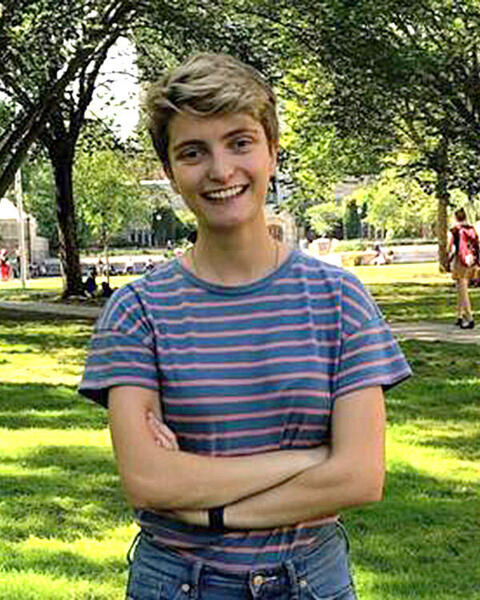
Madeline Reinecke
Madeline G. Reinecke is a third-year doctoral student in the Psychology Department at Yale . Her research stands at the junction of cognitive psychology, social psychology, and moral philosophy—investigating how people evaluate others’ minds and moral standing across development. She also examines people’s beliefs about the nature of morality.
For her project, she takes as her point of departure the fact that few people appear to take moral issue with the death of billions of non-human animals killed for human consumption. A mere 3% of Americans report being vegetarian, with less than a percent identifying as vegan. These dietary choices may be implicated in what’s recently been termed “speciesism”: “the assignment of different moral worth based on species membership.” Her project will advance our understanding of why we often deny moral standing to non-human animals. Blending psychological and philosophical approaches, she aims to investigate the cognitive underpinnings of these evaluations—determining whether some people employ category-based reasoning in judging moral standing (e.g., “Any human matters more than any non-human”). These findings will provide mechanistic understanding to a fundamental theoretical and applied moral issue, contributing to the fields of philosophy, psychology, and cognitive science.
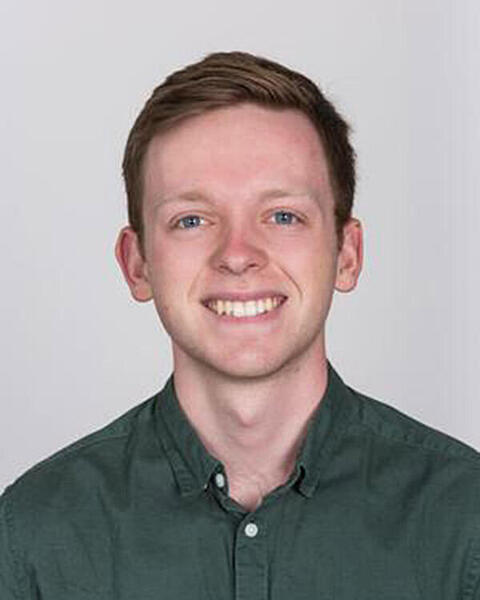
Jack Shaw
Jack is a third-year graduate student in the Department of Geology and Geophysics. He grew up in the United Kingdom and moved to the United States for his undergraduate education as part of a Sutton Trust-Fulbright social mobility program. Much of his current work attempts to treat the fossil record as “big data” in order to conduct temporally and spatially extensive studies into how marine communities were structured in the past and how these communities responded to perturbations such as climate change. Through this research, he hopes to offer insights that can be used to consider how ongoing human-driven climate change may affect communities and ecosystems in the future.
Ecological communities are complex systems, often composed of thousands of interacting species. Network analyses of those interactions have unlocked critical features of community structure and responses to perturbations (e.g., climate change). Similarly, studies of ancient interaction networks, as evidenced by fossils, reveal paleoecological processes through Earth history. However, many of these analyses do not account for key differences between modern and ancient interaction data including the selective loss of pelagic and soft-bodied taxa during fossilization. Jack aims to create an information loss pipeline, modeled on fossilization processes, to modern food webs. Comparing the structure of “artificially fossilized” networks to ancient trophic networks will allow us to consider what ancient webs may look like without information loss. The results of this initial study will then be applied to real datasets.
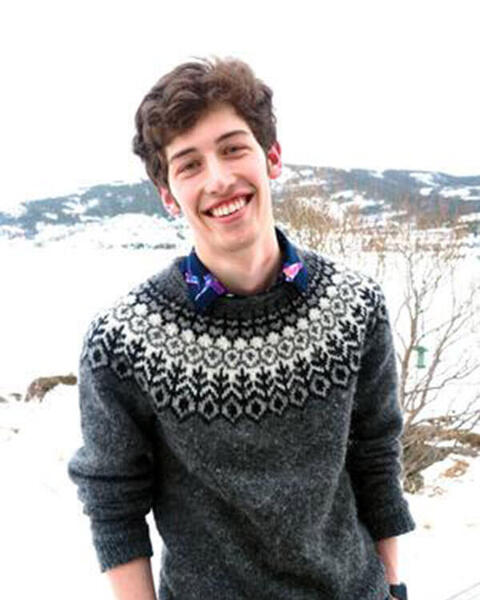
Liam Taylor
Liam Taylor is a second year doctoral student in the Yale Department of Ecology and Evolutionary Biology. Liam’s dissertation research focuses on the intersection between age-structure and the evolution of sexual and social behaviors in birds, with a particular focus on the ways in which differences between young and old birds helps cultivate new forms of interactions between individuals. While his current work is focused on the colorful and dramatic manakins of South America, Liam’s past fieldwork has included time with Semipalmated Plovers in the subarctic of Churchill, Manitoba and several seasons with Leach’s Storm-Petrels at the foggy Kent Island in the Bay of Fundy. When not birding, Liam can be found accumulating rustic-seeming hobbies such as sourdough bread-making.
The study of evolutionary biology is fraught with contested terms, and arguments over these terms frequently prevent consensus and close down research trajectories. Most important of these terms are phenotype, fitness, and adaptation. In his work as a Franke Fellow, Liam is interested in helping to settle these terms with the philosophical and anthropological power of semiotics. Semiotics works to understand the ways in which something (e.g., a word) stands for something (e.g., a definition), and how that process of standing for is what renders something (e.g., an understanding of what someone is talking about) meaningful. The same process is deeply situated in the study of evolution, where phenotypes are taken to stand for genotypes, and a scientist might observe an adaptation as a structure or behavior that arises as form of meaning from this process. Following this line further, he is working to clarify the conceptual commitments that biologists make when they see meaningful adaptations as “real things, out in the world,” rather than as research tools that mark a form of scientific observation. Tracing these commitments leads us to controversial new rules. For example, if adaptations mean something in the environment, they must mean something to the environment.

Luna Zagorac
Jovana “Luna” Zagorac is a fourth year Ph.D. candidate in the Physics Department at Yale , working with parallelized pseudo-spectral codes to simulate exotic dark matter candidates. In the past, she has worked on blazar outbursts, creation of supermassive WIMPs during inflation, halo bias, and primordial black holes. She hails from Belgrade, Serbia, and graduated from Colgate University with a B.A. in Astronomy/Physics and Anthropology. She has participated in archaeological excavations in New York state and Upper Egypt, where she volunteered with the South Asasif Conservation Project. In addition to structure formation and exotic phenomena originating in the early universe, she is passionate about Egyptian languages (including studied Arabic, Middle, and Late Egyptian), and is continuously fascinated by conceptions of cosmos pharaonic Egypt, and beyond.
Though the Ancient Egyptians clearly had a relationship to the heavens, the observational data behind the relationship remains shrouded in mystery. One of the most enigmatic elements of their supposed timekeeping were star clocks, lists of stars and constellations – called decans – which marked the passing of the hours of the night. The decans performed mysterious actions during the night, which the most prolific work in Egyptian Astronomy equates with heliacally rising, or rising at sunset. This theory is not without tension, and leaves the vast majority of the decans unidentified. Luna plans to compare these lists and tables to a reproduction of the Ancient Egyptian sky at different dates in a planetarium software and attempt to create a correlation of the Egyptian sky with the Greek names we use today, thus creating a diagram of the Egyptian heavens.
Franke Post-Doctoral Fellows
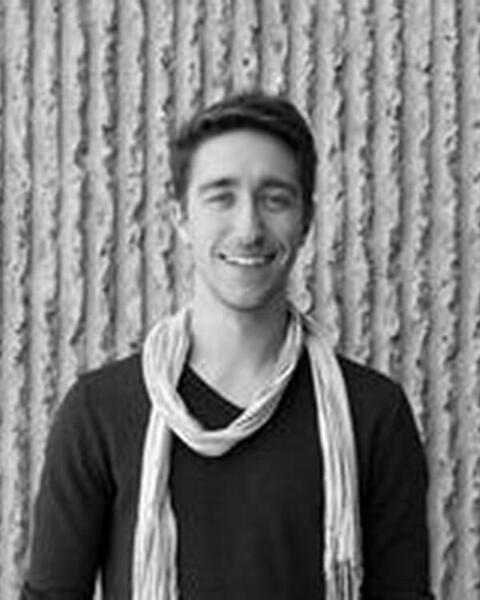
Davis Butner
Yale School of Architecture 2019
In contemporary architectural practice, absent of any overarching religious dogmas, what constitutes ‘sacred’ space? Given the diverse images of sparsity, intimacy, introspection, and communal ritual that the term ‘sacred’ conjures, can architects effectively design spaces of universal reverence? Is the notion of sacred architecture intuitive? Is it learned? Must it be considered from an aural, as well as visual perspective? In order to better understand ways in which aural practices have shaped the design of sacred spaces and can inform architects envisioning future spaces of reverence, Davis has curated an exhibit entitled ‘Sounding Sacred’ in the Yale School of Architecture North Gallery, which surveys the acoustical and formal characteristics of four religious vernacular typologies through physical models, aural recordings, historical analysis, and digital animations.
With continued funding from the Franke Program, he has traveled to Asia to visit one of the sites on which he focused in his thesis, namely the Hindu Koothambalams of Kerala. He has now explored a variety of architecture relics during Diwali and has traveled down to Kochi for a day to explore nearby Koothambalam architecture. Through a series of serendipitous encounters, he met a number of local experts on the history and practice of traditional Keralan Koodiyattam, which takes place in these sacred architectural spaces. This led to a private tour of three koothambalam sites around Kerala, including the Koothambalam he had focused on last year in the Vadakunnathan temple in Thrissur.
More on Davis’ work may be found here, including remarkable visualizations of his research.
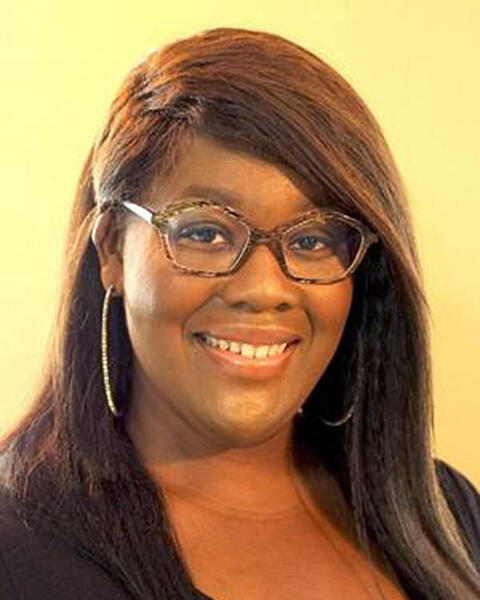
Ambre Dromgoole
Through an excavation of unreleased documents, diaries, interviews, and video footage, Ambre’s project highlights unsung gospel songwriter, Roxie Ann Moore. In foregrounding Moore’s work, she builds on scholarship that showcases the kinship between the formation of various music genres, while exploring a Black female artist missing from the historical record.
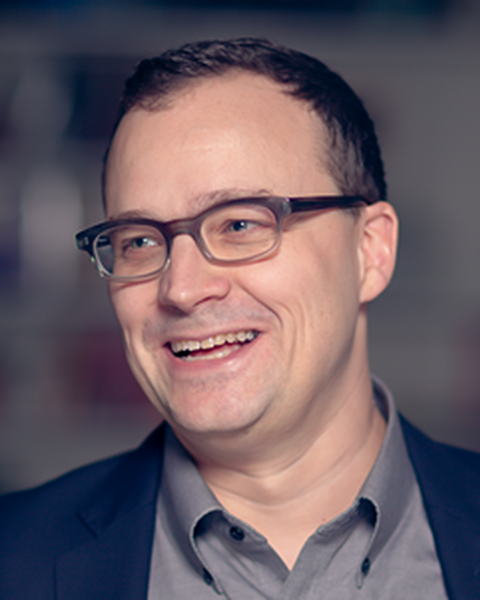
David Merritt Johns, Ph.D., MPH
David is an historian and postdoctoral fellow in the Department of Health Policy & Management at the Yale University School of Public Health. His research examines the role of scientific evidence in public health policymaking, the history of the evidence-based movement, and the unique challenge of modifying or abandoning existing policies and programs when the evidence for their effectiveness comes under challenge. He received his PhD and MPH degrees in Sociomedical Sciences from Columbia University and his BA from Stanford University. His work has been published in Science, The New England Journal of Medicine, Health Affairs, The Lancet, The Milbank Quarterly, Big Data & Society, and other journals. Johns is currently a fellow with Yale’s Franke Program in Science and the Humanities and an affiliate of the Data & Society Research Institute, a think tank focused on the social and ethical implications of “big data.” He is also a journalist and former public radio reporter and producer.
His project examines the long and bitter scientific controversy over whether elevated salt consumption has a marked impact on population health and contributes meaningfully to deaths from heart attack and stroke. It examines the sources of polarization that have divided the landscape of sodium science and policy into two entrenched and opposing epistemic “silos,” including the role of the food industry and that of actors in government long committed to policies of salt reduction. The project is grounded in historical analysis of thousands of pages of emails, memoranda, and other documents obtained from government and industry sources through the use of the Freedom of Information Act and via extensive research in public and private archives.
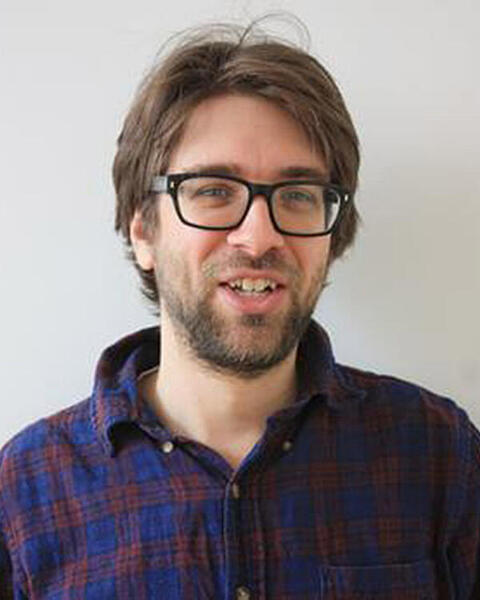
Gerald Jordan, Ph.D.
Gerald is a Postdoctoral Fellow at the Yale Program for Recovery and Community Health (PRCH). He recently received his PhD from the Department of Psychiatry at McGill University. His doctoral research used multiple methods to explore how young people experience positive change/growth following a first episode of psychosis, as well as predictors/perceived facilitators of such change. As a Postdoctoral Fellow, he is exploring ways that persons with mental illness give back to others and society (i.e., generativity), and predictors/perceived facilitators and barriers to giving back.
For his Franke project, Gerald seeks to build on his research program by holding a one-day symposium to develop consensus on the ethical, social, political, economic, and cultural considerations that we must make as we further develop understandings of, and interventions fostering, posttraumatic growth and generativity among persons with serious mental illnesses. By engaging with this knowledge in a multidisciplinary fashion that also includes the expertise of persons with serious mental illnesses, a more holistic understanding of these topics may be achieved.
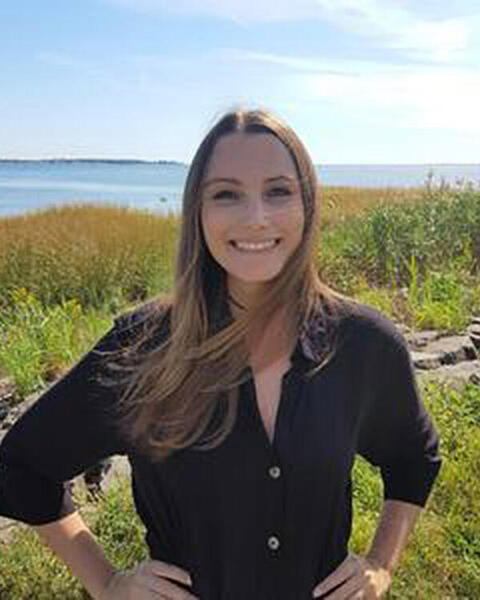
Matti Wilks, Ph.D.
Matti Wilks is a postdoctoral research associate in the Department of Psychology at Yale. She broadly studies moral psychology and moral development. Her current work explores our intuitions around food technology— why we see food technology as immoral, why we prefer natural foods and why unnatural and immoral are sometimes seen as synonymous. In her Franke project she will take a deep dive into natural intuitions around cultured (lab-grown) meat to understand what drives people to consider cultured meat unnatural and which of these factors contribute to negative perceptions of this food technology.
